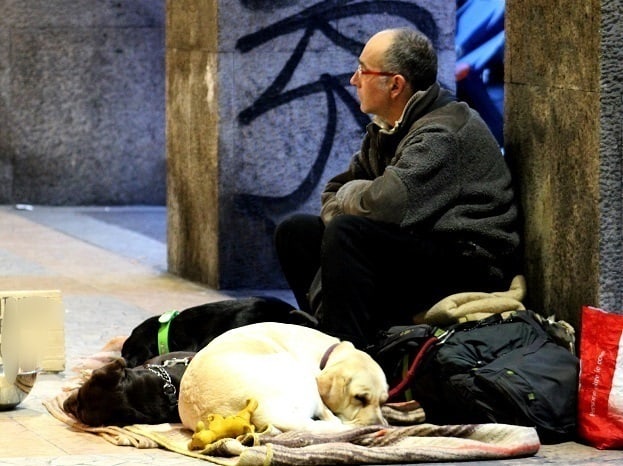
A pilot scheme in Thanet is providing homes for people with a long history of rough sleeping – with one man in accommodation after being caught in a cycle of homelessness for more than a decade.
The Housing First scheme, by Porchlight and Thanet District Council, began in Thanet in April. There are currently two properties, each housing one person. A third property is being sought.
Housing First is a scheme where people are moved into their own home and then start to address other issues they are facing such as mental ill health or drug or alcohol dependency.
It differs from other supported housing models because people do not have to prove they are ready for independent living. No conditions are placed on them, other than a willingness to engage with their support worker.
*Michael started using drugs and alcohol as a coping mechanism following a traumatic incident. Before being housed he had been in and out of prison for drug offences and was sleeping rough.
He is now getting emotional and practical support as part of Housing First, including help accessing alcohol and drug recovery from The Forward Trust.
Housing First provides long-term support and the scheme recognises that if people feel safe and included, they will, in their own time, start to recover and make positive choices about how they live their life.
It is relatively expensive compared to some other homelessness services because people supported by the scheme have very complex needs that can’t be quickly addressed. It requires skilled staff who can deliver intensive support and often takes a long time for people to recover and regain their independence.
However, for every £1 spent on the Housing First scheme, there is a saving (or social return) of £13.24.
This includes savings on reducing A&E visits, inpatient care and police interventions such as custody incidents and the difference in the level of crime each person was committing in relation to their drug and alcohol use before and during Housing First.
The Thanet scheme is jointly funded by Kent County Council (through its Kent Homeless Connect scheme), Porchlight and Thanet District Council.
The Porchlight Housing First support worker, who provides ongoing support to help people overcome the issues they are facing and regain independence, is funded Kent County Council.
Thanet District Council sources the properties and rent is paid via the client’s housing benefits. Porchlight pays for the costs of setting up a property so it feels like home and also covers the cost of food and bills until a client has regained their independence and is in the position to start paying for these themselves.
Porchlight spokesperson Chris Thomas said: “Thanks to the Housing First scheme, some of the area’s most vulnerable people have the chance of a brighter future. We know that if they feel safe, supported and included, they will start to recover and make positive choices about how they live their life.
“We’ve seen people in in other Housing First schemes recover from years of homelessness and go on to build homes, establish healthy relationships with their families, and overcome mental and physical health issues. Now, vulnerable people in Thanet will have the same opportunities.”
Cllr Jill Bayford, Cabinet Member for Housing at Thanet District Council, added: “We are fully committed to delivering a housing first solution to rough sleepers in Thanet. Research has shown that this approach can successfully support people with the most complex support needs and we have already started to see successes within our project.”
Shadow member for housing Cllr Helen Whitehead added: “As the introduction of a Housing First model was of huge importance, I am incredibly glad to see delivery become established. To make a difference to our most vulnerable residents we have to provide support and an individualised approach; the work of our RISE team exemplifies this, and the Housing First approach continues and builds on these priorities.
“Housing do incredible work alongside many committed partners and organisations, and it is a credit to all involved.”
Porchlight has run the same scheme with Maidstone Borough Council and Golding Homes in Maidstone since December 2018. It has helped 10 people to maintain a tenancy, improve their health and regain their independence.
For the Housing First scheme in Thanet, Porchlight works with: Thanet council and the RISE homelessness service; Forward Trust; the NHS community mental health team and second-hand furniture stores who sometimes help set up people’s new homes.
Thanet council’s Housing Options Team has also been awarded £175,000 by the Kent Housing Group (KHG), which will help support the prevention of homelessness of private-rented sector tenants and homeowners who may be struggling to pay their rent and mortgages as a result of COVID-19.
If you are a landlord and believe that your tenant might require assistance, or if you are a homeowner and are struggling to pay your mortgage, contact the Housing Options team on 01843 577377 or email [email protected]

